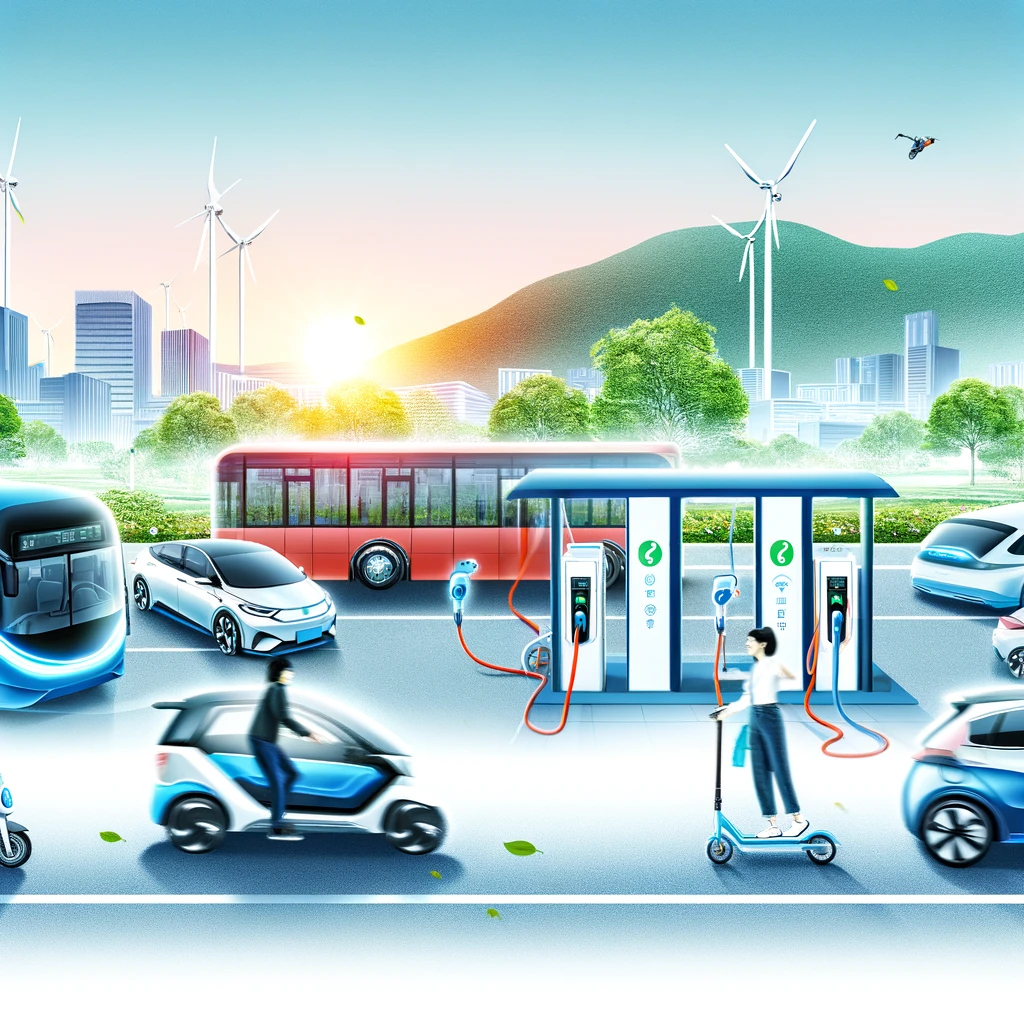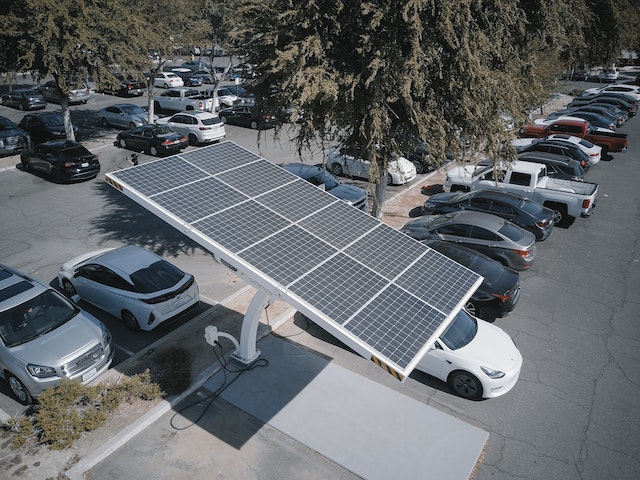Challenges Facing the EV Industry
One of the primary challenges facing the electric vehicle (EV) industry is range anxiety. Consumers are often concerned about the limited distance they can travel on a single charge, leading to apprehension about being stranded without access to a charging station. Despite advancements in battery technology, the perceived inconvenience of recharging EVs remains a significant barrier to widespread adoption.
Additionally, battery recycling poses a pressing challenge for the EV industry. As the demand for electric vehicles continues to rise, so does the need for proper disposal and recycling of spent batteries. On the same subject : Latest Developments in EV Technology: A Review from EV News Network. Ensuring that lithium-ion batteries are safely and efficiently recycled is essential to minimize environmental impact and facilitate the sustainable growth of the EV sector. Addressing these challenges will be crucial in accelerating the transition to a more sustainable transportation system.
Range Anxiety and Battery Recycling
Range anxiety is a common concern among potential electric vehicle (EV) buyers when considering the limited distance an electric car can travel on a single charge. This psychological barrier often arises due to drivers worrying about getting stranded without a charging station nearby. Read also : EV News Network: The Future of Electric Vehicle Updates. Manufacturers in the EV industry are continuously working to address this challenge by enhancing battery technologies to extend the driving range of electric vehicles. By improving battery efficiency and developing fast-charging capabilities, companies aim to alleviate range anxiety and make electric cars a more practical choice for consumers.
Another critical aspect of the electric vehicle sector is the recycling and disposal of batteries. As the demand for EVs rises, so does the need for sustainable solutions for handling lithium-ion batteries once they reach the end of their lifespan. Proper battery recycling is essential to minimize environmental impact, as lithium-ion batteries can pose risks if not disposed of correctly. Companies are investing in battery recycling technologies to extract valuable materials and reduce the ecological footprint of electric vehicles, contributing to a more sustainable future for the industry.
Key Players in the Electric Vehicle Sector
The electric vehicle sector boasts a range of key players who have significantly contributed to the industry’s growth and development. One of the most prominent names in the market is Tesla, known for its cutting-edge technology, sleek designs, and strong focus on sustainability. Tesla’s dominant position in the electric vehicle sector has set a high standard for innovation and performance, challenging other manufacturers to keep up with its pace.
Another noteworthy player in the electric vehicle sector is Nissan, particularly recognized for its Nissan Leaf model, one of the first mass-market electric cars. With a strong commitment to sustainable mobility and continuous innovation, Nissan has solidified its position as a key competitor in the industry. See the article : EV News Network: Your Trusted Source for Electric Vehicle Updates. Other major players such as General Motors, BMW, and Ford have also made significant strides in the electric vehicle market, each bringing its unique strengths and contributions to the table. As the industry continues to evolve, competition among these key players intensifies, driving further advancements in electric vehicle technology and market penetration.
Tesla’s Dominance in the Market
Tesla, led by visionary entrepreneur Elon Musk, has solidified its position as a frontrunner in the electric vehicle market. Renowned for its innovative technology, sleek designs, and sustainable approach, Tesla has set a high standard for electric vehicles worldwide. The company’s flagship models such as the Model S, Model 3, and Model X have garnered immense popularity among consumers seeking eco-friendly transportation options without compromising on luxury and performance.
With a strong focus on expanding its global presence and enhancing its product line, Tesla has continued to strengthen its dominance in the market. The company’s strategic investments in research and development have led to breakthroughs in battery technology, autonomous driving features, and energy storage solutions, further solidifying its reputation as an industry leader. Tesla’s ability to anticipate market trends and swiftly adapt to changing consumer preferences has propelled its success and positioned it as a key player driving the evolution of the electric vehicle sector.
Future Forecast for Electric Vehicle Sales
The future of electric vehicle sales looks promising as global awareness of environmental concerns continues to rise. With advancements in technology and increasing government support for clean energy initiatives, the electric vehicle market is poised for substantial growth in the coming years. Major automakers are ramping up their production of electric vehicles, offering consumers more choices in terms of models and price ranges.
As battery technology improves and charging infrastructure expands, range anxiety is expected to decrease, further fueling the adoption of electric vehicles. In addition, the growing focus on sustainability and the push for stricter emissions regulations are driving consumers toward eco-friendly transportation options. Analysts project a significant increase in electric vehicle sales worldwide, with some forecasts estimating that electric vehicles could make up a sizable portion of total vehicle sales within the next decade.
Projections for Global Market Share
By analyzing current trends and market data, experts predict a substantial increase in global market share for electric vehicles (EVs) in the coming years. Major automotive manufacturers are ramping up their production of EV models to meet the growing demand for eco-friendly and energy-efficient transportation solutions. As governments around the world implement stricter emissions regulations and offer incentives for EV adoption, it is expected that EVs will capture a larger share of the automotive market globally.
With advancements in battery technology and charging infrastructure, the barriers to widespread EV adoption are gradually being overcome. Countries like China, the United States, and European nations are leading the push towards a more sustainable transportation sector by promoting EVs as a viable alternative to traditional internal combustion engine vehicles. As a result, the global market share of EVs is anticipated to expand significantly, with projections indicating a steady upward trajectory in the adoption of electric vehicles across various regions.
Innovations in Electric Vehicle Design
The electric vehicle (EV) sector is witnessing remarkable advancements in design innovations that are reshaping the automotive industry. The incorporation of lightweight materials such as carbon fiber and aluminum alloys is enhancing the structural integrity of EVs while simultaneously improving energy efficiency. Moreover, advancements in aerodynamic design are minimizing drag forces, thus extending the range of electric vehicles on a single charge. These innovative design elements are crucial in addressing consumer concerns regarding range anxiety and optimizing the overall performance of EVs.
Additionally, electric vehicle designers are focusing on the integration of cutting-edge technologies such as augmented reality displays and intuitive human-machine interfaces to enhance the driving experience. Features like heads-up displays and voice-activated controls are becoming standard in modern EV designs, offering a seamless and futuristic driving environment for consumers. This convergence of design and technology is not only revolutionizing the concept of transportation but also setting new standards for sustainability and eco-friendliness in the automotive landscape.
Integration of Autonomous Driving Features
A significant trend in the electric vehicle sector is the integration of autonomous driving features, which adds an extra layer of technological advancement to these already cutting-edge vehicles. Companies like Tesla have been pioneering this aspect, with their Autopilot system that allows for semi-autonomous driving capabilities. These features not only enhance the overall driving experience for consumers but also play a crucial role in the development of fully self-driving vehicles in the future.
The integration of autonomous driving features in electric vehicles represents a crucial step towards the future of transportation. With advancements in artificial intelligence and sensor technologies, autonomous driving features can improve road safety, reduce traffic congestion, and provide added convenience for drivers. As more players in the electric vehicle sector invest in this technology, we can anticipate a proliferation of smart, self-driving cars on our roads in the coming years.
FAQS
What are some challenges facing the EV industry?
The EV industry faces challenges such as infrastructure development, battery technology advancements, and consumer acceptance.
What is range anxiety and how does it affect the EV industry?
Range anxiety refers to the fear of running out of battery power before reaching a charging station. It is a significant concern for potential EV buyers and impacts the adoption rate of electric vehicles. Battery recycling is also essential to address the environmental impact of EV batteries.
Who are some key players in the electric vehicle sector?
Major players in the electric vehicle sector include Tesla, Nissan, Chevrolet, BMW, and Ford, among others.
How dominant is Tesla in the electric vehicle market?
Tesla is a dominant force in the electric vehicle market, known for its innovation, technology, and market presence. The company has played a significant role in driving the adoption of electric vehicles globally.
What are the projections for global market share in the electric vehicle industry?
Projections suggest that the electric vehicle market share is expected to grow significantly in the coming years, with various governments and companies investing in sustainable transportation solutions.
What are some recent innovations in electric vehicle design?
Recent innovations in electric vehicle design include advancements in battery technology, integration of autonomous driving features, aerodynamic improvements, and the development of charging infrastructure.
How are autonomous driving features being integrated into electric vehicles?
Electric vehicles are incorporating autonomous driving features such as self-parking, adaptive cruise control, and lane-keeping assist to enhance safety and convenience for drivers. This integration represents a key innovation in the EV industry.



